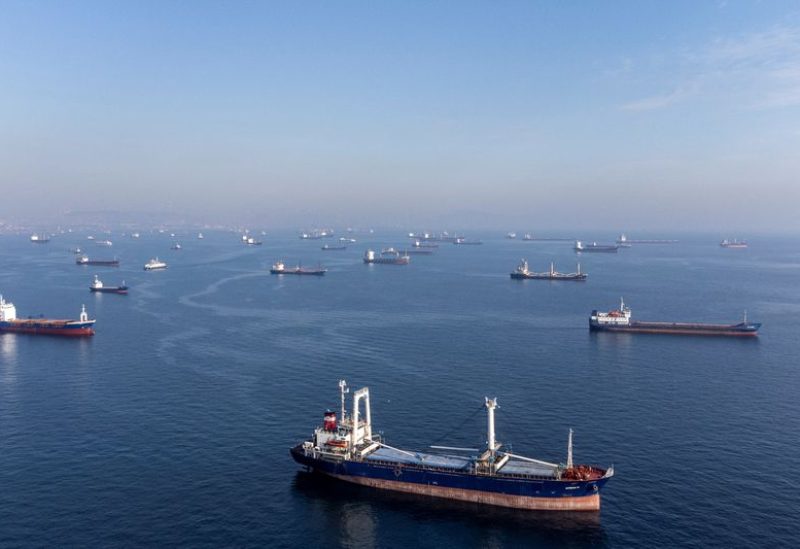
Commercial vessels including vessels which are part of Black Sea grain deal wait to pass the Bosphorus strait off the shores of Yenikapi during a misty morning in Istanbul, Turkey, October 31, 2022. REUTERS
After Russia cautioned that any additional extension beyond mid-May would depend on the lifting of some Western sanctions, a pact allowing the safe export of Ukrainian grain through the Black Sea was extended on Saturday for at least 60 days, or half the intended duration.
The contract was negotiated with Russia and Ukraine by the United Nations and Turkey in July and was extended for another 120 days in November to address the world food crisis, which was exacerbated in part by Russia’s invasion of Ukraine on February 24, 2022, and its blockade of the Black Sea. The agreement was supposed to end on Saturday.
The United Nations and Turkey said on Saturday that the deal had been extended, but did not specify for how long. Ukraine said it had been extended for 120 days. But Russia’s cooperation is needed and Moscow only agreed to renew the pact for 60 days.
“The Black Sea Grain Initiative, alongside the Memorandum of Understanding on promoting Russian food products and fertilizers to the world markets, are critical for global food security, especially for developing countries,” U.N. spokesman Stephane Dujarric said in a statement.
Russia and Ukraine are key global suppliers of food commodities and Russia is also a top exporter of fertilizer.
To help persuade Russia to allow Ukraine to resume its Black Sea grain exports last year, a three-year deal was also struck in July in which the United Nations agreed to help Russia with its food and fertilizer exports.
Western powers have imposed tough sanctions on Russia for its invasion of Ukraine. While its food and fertilizer exports are not sanctioned, Moscow says restrictions on payments, logistics and insurance industries are a barrier to shipments.
Russia’s U.N. Ambassador Vassily Nebenzia said on Friday that the European Union, the United States and the U.K. now “have two months to exempt from their sanctions the entire chain of operations which accompany the Russian agricultural sector,” if they want the Ukraine Black Sea grain deal to continue.
U.S. Ambassador to the U.N. Linda Thomas-Greenfield responded that Washington had “gone to extraordinary lengths to communicate the clear carve-outs for food and fertilizers to governments and to the private sector.”
The United Nations has said that while progress has been made on facilitating Russian agricultural exports, there were still impediments, particularly in relation to payment systems.
Dujarric said on Saturday that the United Nations was strongly committed to implementing both the Ukraine Black Sea grain deal and the pact with Moscow and urged “all sides to redouble their efforts to implement them fully.”
Ukraine has so far exported nearly 25 million tonnes of mainly corn and wheat under the deal, according to the United Nations. The top primary destinations for shipments have been China, Italy, Spain, Turkey and the Netherlands.